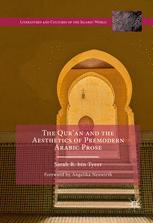

Most ebook files are in PDF format, so you can easily read them using various software such as Foxit Reader or directly on the Google Chrome browser.
Some ebook files are released by publishers in other formats such as .awz, .mobi, .epub, .fb2, etc. You may need to install specific software to read these formats on mobile/PC, such as Calibre.
Please read the tutorial at this link: https://ebookbell.com/faq
We offer FREE conversion to the popular formats you request; however, this may take some time. Therefore, right after payment, please email us, and we will try to provide the service as quickly as possible.
For some exceptional file formats or broken links (if any), please refrain from opening any disputes. Instead, email us first, and we will try to assist within a maximum of 6 hours.
EbookBell Team

5.0
58 reviewsThis book approaches the Qur’an as a primary source for delineating the definition of ugliness, and by extension beauty, and in turn establishing meaningful tools and terms for literary criticism within the discipline of classical Arabic literature (adab). Focusing on the aesthetic dimension of the Qur’an, this methodology opens up new horizons for reading adab by reading the tradition from within the tradition and thereby examining issues of “decontextualisation” and the “untranslatable.” This approach, in turn, invites Comparatists, as well as Arabists, to consider other means and perspectives for approaching adab besides the Bakhtinian carnival. Applying this critical strategy to literary works as diverse as One Thousand and One Nights and The Epistle of Forgiveness, Sarah R. bin Tyeer aims to prove two major points: how Bakhtin’s aesthetics is anachronistic and therefore theoretically inappropriate when applied to certain literary works and how ultimately this literary methodology is sometimes used as a proxy for ungrounded and, sometimes, unfair arguments by other scholars.
Foreword by Angelika Neuwirth, Professor of Quranic studies, Freie University, Berlin, Germany.